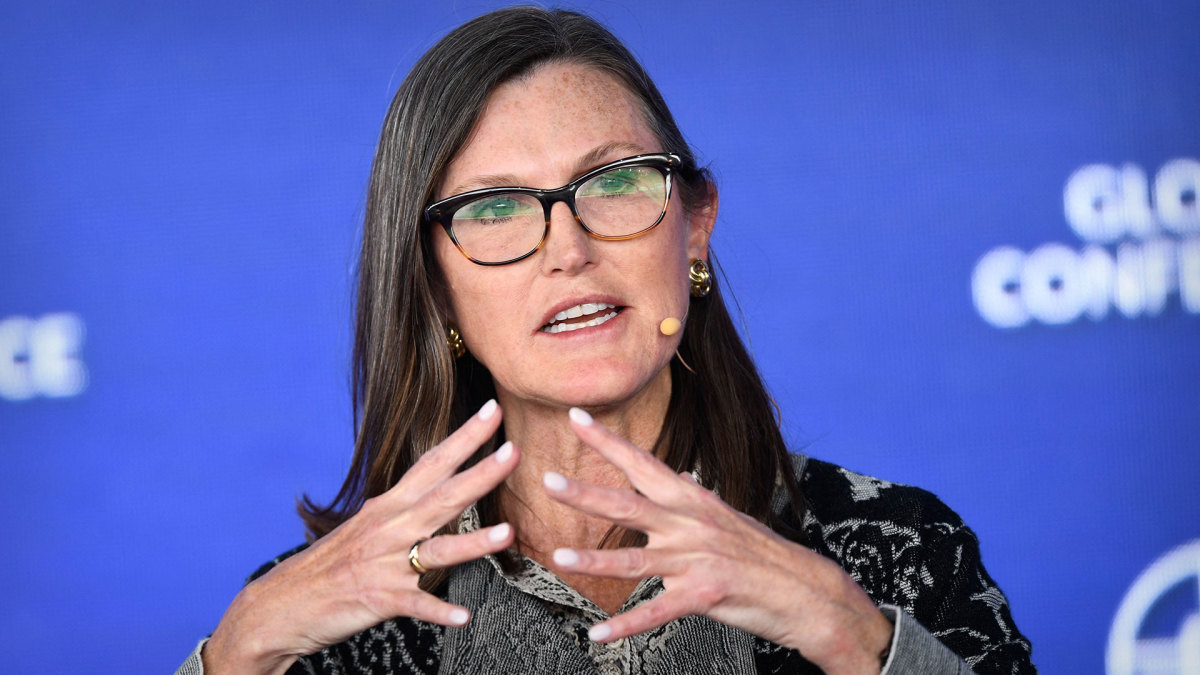Why Cathie Wood's Ark is one of the worst fund groups in America
A new analysis of "Mama Cathie" over the past decade isn't very favorable.

How do you become a rock star in the money management world?
For Cathie Wood, head of Ark Investment Management, the ticket has been three separate years of stellar performance, a focus on sexy technology-investment themes, and an ability to clearly and simply explain her investment philosophy in countless media interviews.
Her flagship Ark Innovation ETF (ARKK) , with $7.7 billion of assets, generated a return of 36% in 2019, a whopping 153% in 2020 and 68% in 2023, according to Morningstar. But other years haven’t been so kind to Mama Cathie, as her acolytes call her.
Related: Cathie Wood sells a major tech stock (again)
Ark Innovation returned a negative 32% annualized for the past three years and a mere positive 2% for the past five years.
That’s not too impressive compared with the S&P 500, which posted positive returns of 10% for three years and 15% for five years. Wood’s goal is at least 15% annualized returns over five years.
To be sure, Ark Innovation’s return profile looks better in the long term. It began trading on Oct. 31, 2014 and returned 12% annualized from then through Dec. 31, 2023, according to Ark.
For a slightly different period – the 10 years through Dec. 31, 2023 – the S&P 500 returned about the same amount. Of course, Wood was taking a lot more risk than the S&P 500. PATRICK T. FALLON/AFP via Getty Images
Cathie Wood: criticism and her retort
Her investment strategy isn’t difficult to understand. Ark’s ETFs generally buy young, small stocks in the high-technology categories of artificial intelligence, blockchain, DNA sequencing, energy storage, and robotics. She sees those sectors as game changers for the global economy.
As you might expect, these stocks are volatile, so the Ark funds are subject to quite a rollercoaster ride. And Wood frequently trades in and out of her top names.
Morningstar’s analysts have judged Wood harshly. “ARK Innovation has dubious ability to successfully navigate the challenging territory it explores,” Morningstar analyst Robby Greengold wrote last year.
The potential of Wood’s five high-tech platforms listed above is “compelling,” he said.
“But Ark’s ability to spot the winners among them and navigate their myriad risks is less so. The strategy’s booms and busts have culminated in middling total returns and extreme volatility since its inception.”
Greengold isn’t enamored with Wood’s investment style. “Her reliance on her instincts to construct the portfolio is a liability,” he said.
It’s not an investment 101 portfolio. “The strategy narrowly invests in stocks with paltry current earnings, elevated valuations, and highly correlated stock prices,” Greengold said. “Their extreme volatility underscores their highly uncertain futures.”
Wood has defended herself from Morningstar’s criticism. “I do know there are companies like that one [Morningstar] that do not understand what we're doing,” she told Magnifi Media by Tifin in 2022.
“We do not fit into their style boxes. And I think style boxes will become a thing of the past, as technology blurs the lines between and among sectors.”
Morningstar again takes Cathie Wood to task
Now Morningstar has taken Wood to task again. Amy Arnott, a portfolio strategist for the investment research firm, put together a list of the 15 mutual funds/ETFs that have lost the most money for shareholders over the past decade.
More Tech Stocks:
- Analyst unveils new Facebook stock price target after earnings
- Analyst predicts Qualcomm stock rally, unveils new price target
- Cathie Wood sells a major tech stock (again)
She ranked Ark Innovation at No. 3 on her "wealth destruction" hit list, estimating it destroyed $7.1 billion of shareholder wealth during the period.
ProShares UltraPro Short QQQ ETF (SQQQ) placed first on the list with a loss of $8.5 billion. And ProShares Ultra VIX Short-Term Futures ETF (UVXY) came in second with a loss of $7.2 billion. Both funds are leveraged bets against stocks.
When Arnott looked at families of funds, Ark scored No. 1 for wealth destruction — $14.3 billion over the past 10 years. That was more than twice the losses generated by No. 2 — KraneShares, a group of ETFs with investments in China.
Wood may already be paying a price for her erratic performance. Ark Innovation has suffered a net investment outflow of $1.2 billion over the past year, according to ETF information service VettaFi.
TheStreet has contacted the firm, requesting comment.
Related: Veteran fund manager picks favorite stocks for 2024
What's Your Reaction?



























































